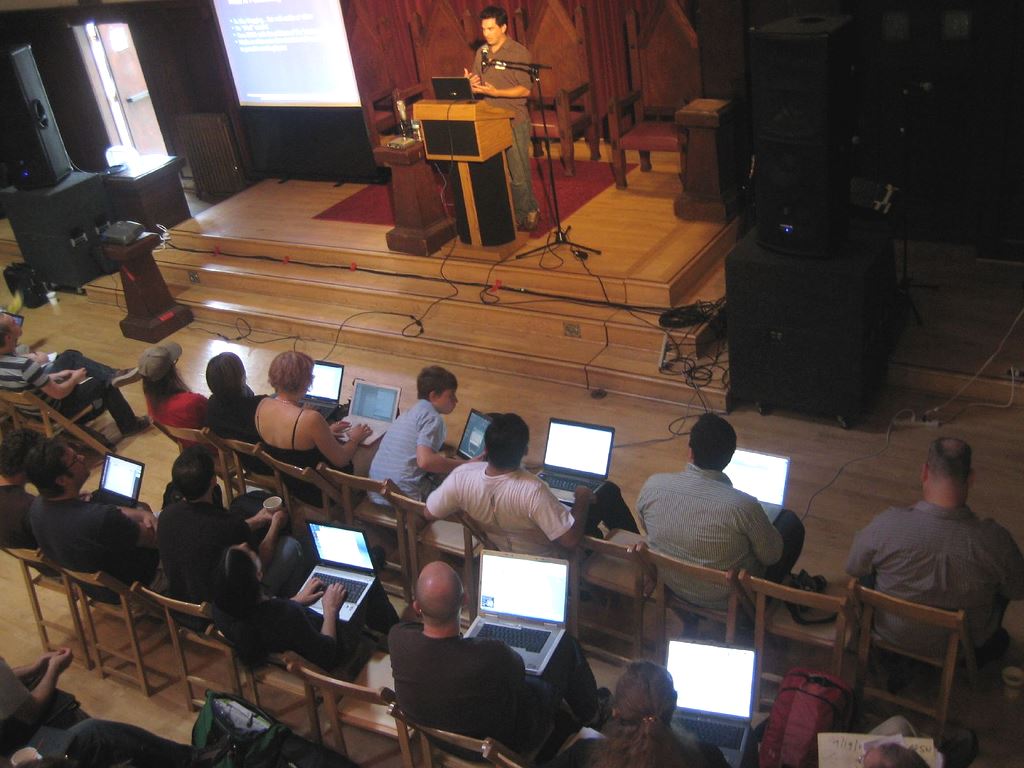A major release of WordPress (version 5.0) open source publishing software and a major gathering of WordPress experts (Wordcamp) coincided in early December 2018. It wasn’t a coincidence. People who had contributed to the new software could explain what was new, and why it was important. The lead developer and co-founder of WordPress Matt Mullenweg could open up the reasoning for Gutenberg and talk about the future.
I followed as many talks as I could during the two days of the Wordcamp 2018 Nashville event. Since I wasn’t among the excited audience where many other important things like networking, finding food, locating the best place for a strong Wi-Fi signal, and trading t-shirts was happening, I could completely concentrate on the messages delivered by the speakers and by audience via their questions and comments. Here is what I learned.
Three key items that have short and long term effects on the WordPress community were:
- Gutenberg blocks really will change the way we build and publish WordPress sites.
- The complete absence of privacy and security during the conference and in WordPress 5.0 release info was worrying.
- Friction between Automattic and other enterprisess contributing to WordPress and making business with it is heating up.
There will be a block for that
WordPress 5.0 introduced a new writing and publishing tool known as Gutenberg. It completely changes the way posts are written and edited. The tool is based on block architecture: a paragraph is a block, an image is a block, and so on. Developers can, and already have created blocks that extend the editor’s built-in functionality.
In his speech, Mullenweg explained that the block editor was only Gutenberg’s first phase. Phase two is planned to change the way themes, widgets and menus are built. Yes, blocks will take over them, too. In 2019, we can anticipate some results from this development. Phase three focuses on collaboration, multi-user and workflow tools.
This has far-reaching, long-term consequences for everyone who builds and modifies themes and plugins. Although I expect current themes to remain upward compatible, the new way of building themes and plugins will have to be adopted sooner or later.
High-risk attitude towards privacy and security
Total lack of talks (perhaps there were some, but I didn’t manage to catch any) about privacy and security is extremely worrying. The day probably will come when a bug in the WordPress software exposes 32% of web sites on the internet to misuse.
WordPress sites are constantly under attack, spam is wild, but developers are creating plugins for securing sites. WordPress should have built-in tools and functions for security. Matt Mullenweg didn’t even say the word security or privacy during his speech.
Business and decision-making friction is building up
WordPress is open source software that a community of unselfish coders are developing to make the world a better place – that is the idealist side of an open source project. The reality, of course, is something else.
Automattic and Matt Mullenweg have established a perfect position for the business side of things by keeping WordPress close to their chest.
A couple of speakers, for instance from Yoast, addressed a serious issue about decision-making. Yoast had lost six months worth of work because they didn’t know that Gutenberg was coming with a new architecture. Another business leader proposed establishing a governance model for WordPress because decision-making is not transparent (even though WordPress as an open source product is).
This is a big, serious and hot issue. It must be solved during 2019.
Any change to the original WordPress architecture is good news
WordPress 5.0 is the first step to a direction that looks very promising for everyone who is developing, or just modifying themes and plugins. The original system architecture (or lack of it) is very original. Changing it will cause huge outcry from businesses who have invested in products that rely on it. Yet, now we know that the change is coming.
Header photo by Andrew Mager.



A week after WordPress 5.0 was released, a security release 5.01 has been made available. A few serious vulnerabilities that affect all installations since version 3.7 have been fixed. The 5.01 breaks some plugins.More info and download: https://wordpress.org/news/2018/12/wordpress-5-0-1-security-release/